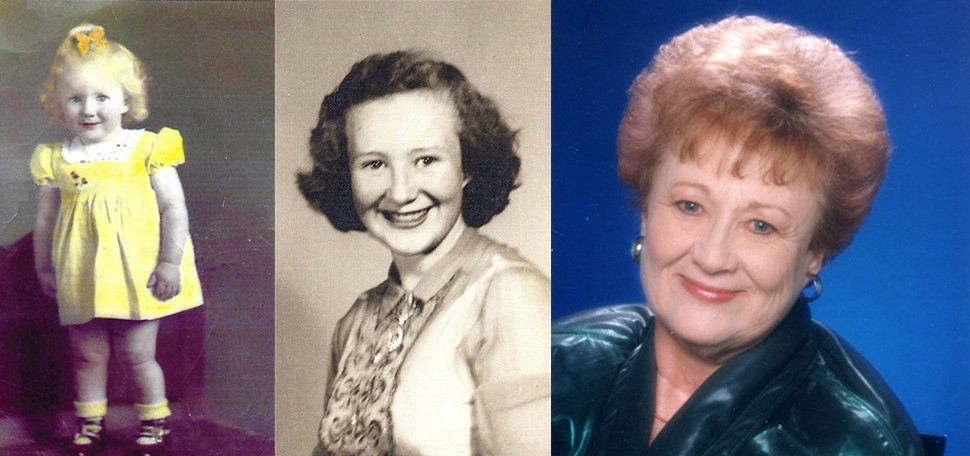Reese is a retired nurse in Springfield, Missouri.
*
I’ve experienced death from many angles, starting with a family cursed by cancer. For me, it’s not a matter of if but when I’ll be told I have cancer in some form. I’m a 56-year old daughter, sister, wife, mother, and now grandmother. I’m also a retired nurse with a career lasting 30+ years. I’ve cared for family, friends and multitudes of patients during their final days and have seen the toll death can have on everyone involved.
There’s a haunting memory engraved in my mind from each and every death I’ve witnessed, but none more so than when my Mom passed. She was just 62 years old, a private and proud woman, and just beginning to enjoy life after a divorce. When the diagnosis of metastatic liver cancer was made, we all got a phone call and she began her fight for more time. Every update to family was limited since she chose to suffer the pain and ongoing procedures in private for as long as possible. I cringe when I think of her being alone and sick from chemotherapy but she never complained and didn’t want to burden anyone. The last call I got from her was to tell me, “You don’t have to worry. They can’t find the cancer anymore.” That was her way of telling us the treatments would stop. Nothing more could be done.

Reese Marshall’s mother at the age of 2, 16, and as an adult.
My brother and I took Mom home to die. From the day she came home ’til the day she passed was only 3 weeks. But, during those few days she endured the embarrassment of total care and lost all control of what wasn’t living…but existing. She never would have wanted to stay alive so others could watch her die.
Home care aids came by daily for baths and nurses visited to access her physical needs. Because I was a nurse, I was often asked by family to answer the question of how long I thought “it” would take. My grandmother told me, “You’re killing her,” because she wasn’t in a hospital with an IV, and I was overwhelmed by outsiders wanting to give Mom a new vitamin supplement. All I wanted was to protect and take care of her as best I could.
There were times, in the beginning, when we had coherent talks about a lot of things but she kept returning to her funeral plans and how she hated when people came by to gawk at her. She sobbed when telling me how sorry she was that she soiled the bed and how she hated having a catheter. She cried when people were being loud in her room and often yelled “What’s happening to me?” as she became more confused. The anxiety and disorientation grew and her pain medication was increased to the point of being unresponsive. Still, tears ran down her face when she was bathed and she moaned in pain when being repositioned in bed.
I was never convinced she was being kept comfortable. Even with every attempt made to keep her comfortable, she still cried real tears when she soiled herself and still moaned in pain when she was moved. Medications had little or no affect in the last days. She was helpless and, if given a choice, would never have wanted to die like that. Those were the last memories I have of my beautiful Mother: severe pain and indescribable fear from having no control. She fought hard to live but the disease ultimately won with a vengeance. Death rattles was the only noise she made. I left her side for a minute and returned to find that she had passed. I wanted to be holding her when she took her last breath but she waited until she was alone.
Since then, I’ve lost my Father, grandparents and several others to terminal illnesses. Most recently, my uncle followed by his daughter (my cousin) only six months later. When I heard her sister tell me how she’d kept asking, “When will “it” be over?”, I cried.
When I heard Brittany Maynard’s story the year before last, I felt hope. Brittany talked of individual beliefs, making choices and deciding to not let her disease dictate when her suffering should end. She also brought to light the political and social struggles over the legalization of physician assisted death. Honestly, it didn’t feel like a reachable goal since things move at a much slower pace and change is a big fear of its own here in the Midwest.
Then I saw Christy O’Donnell on the news and I started believing again that I might play a small part in the fight for end of life decisions. I messaged her through Facebook and grew to love her conviction and grace. She has a way of making you feel that you’ve known her for years. I made a YouTube video, started a letter writing campaign to Governor Brown, began a Facebook page (I’m Not Sick I’m Human) and pledged to honor Christy and everyone who should’ve had the choice to die a gentle death in the past, the brave individuals fighting now, and for my granddaughter’s future.
When my battle to live can no longer be won, let me decide. Let me shoulder the consequences and take control before the disease takes me.
No one knows what decisions they’d make themselves until they’re actually there. When my battle to live can no longer be won, let me decide. Let me shoulder the consequences and take control before the disease takes me.
(October 2015)